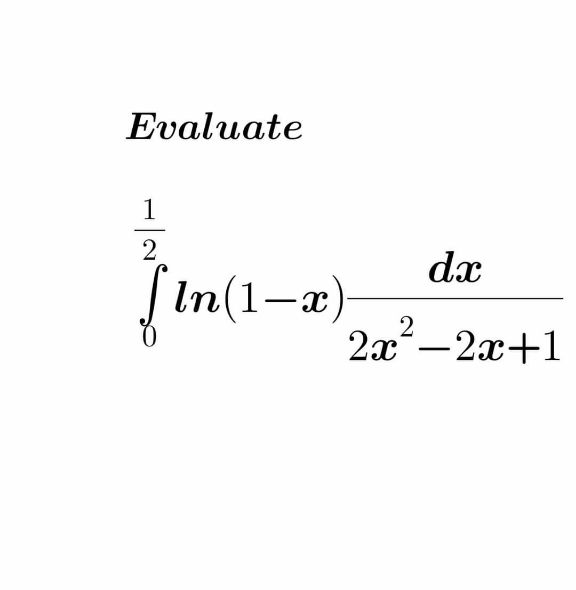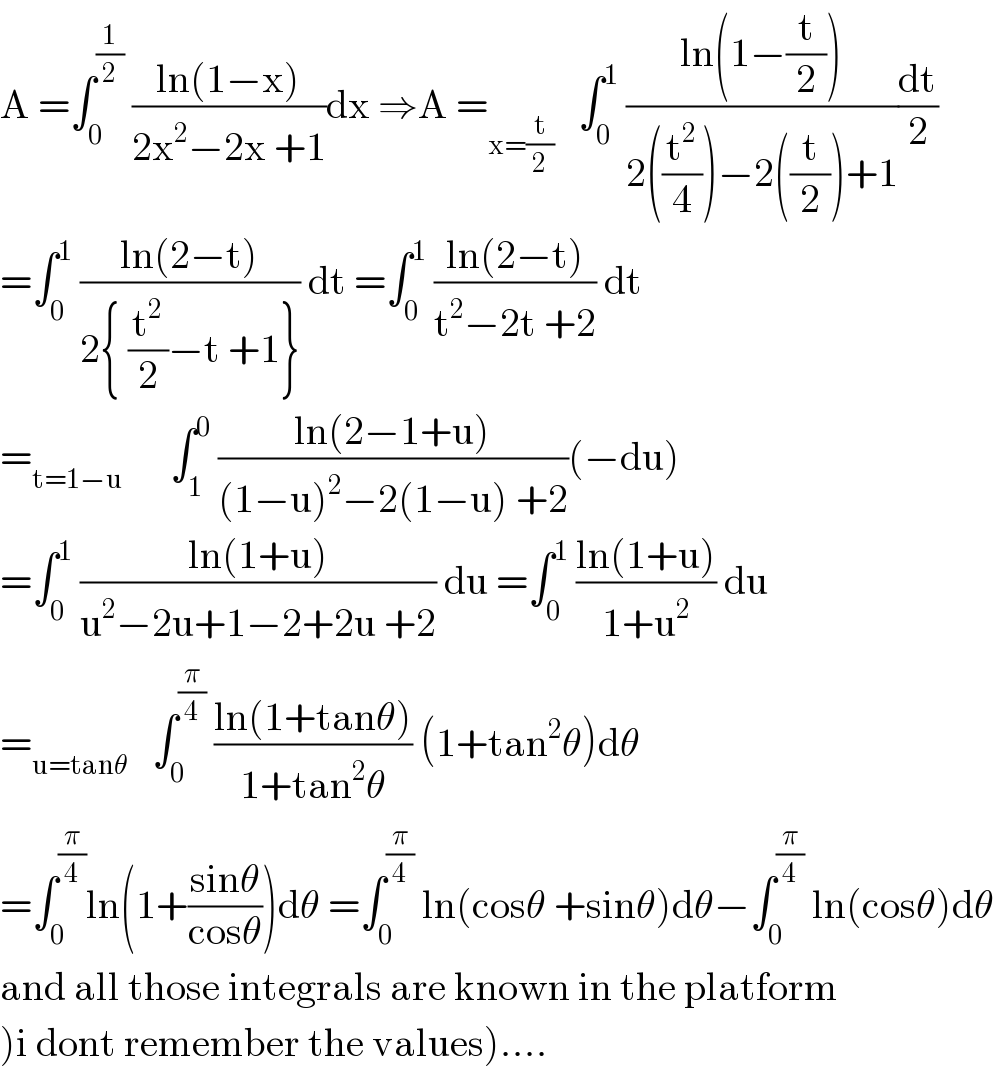
Question and Answers Forum
Question Number 109343 by 150505R last updated on 22/Aug/20

Commented by 150505R last updated on 22/Aug/20

Answered by mathmax by abdo last updated on 23/Aug/20

Answered by mathdave last updated on 22/Aug/20
![my solution here it goes I=∫_0 ^(1/2) ((ln(1−x))/((2x^2 −2x+1)))dx=(2/2)∫_0 ^(1/2) ((ln(1−x))/((2x^2 −2x+1)))dx=2∫_0 ^(1/2) ((ln(1−x))/((4x^2 −4x+2)))dx I=2∫_0 ^(1/2) ((ln(1−x))/((2x−1)^2 +1))dx (let 2x−1=y and dx=(dy/2)) I=(2/2)∫_(−1) ^0 ((ln(1−(((1+y)/2))))/(y^2 +1))dy=∫_(−1) ^0 ((ln(((1−y)/2)))/(1+y^2 ))dy let y=−t dy=−dt I=∫_1 ^0 ((ln(((1+t)/2)))/(1+t^2 ))×−dt=∫_0 ^1 ((ln(1+t))/(1+t^2 ))dt−∫_0 ^1 ((ln2)/(1+t^2 ))dt I=∫_0 ^1 ((ln(1+t))/(1+t^2 ))dt−ln2[tan^(−1) (t)]_0 ^1 =∫_0 ^1 ((ln(1+t))/(1+t^2 ))dt−(π/4)ln2 let tanx=t and dt=sec^2 xdx and 1+tan^2 x=sec^2 x I=∫_0 ^(π/4) ((ln(1+tanx))/(sec^2 x))×sec^2 xdx−(π/4)ln2=∫_0 ^(π/4) ln(1+((sinx)/(cosx)))dx−(π/4)ln2 I=∫_0 ^(π/4) ln(((sinx+cosx)/(cosx)))dx−(π/4)ln2=∫_0 ^(π/4) ln(cosx+sinx)dx−∫_0 ^(π/4) ln(cosx)dx−(π/4)ln2 since ∫_0 ^(π/2) ln(cosx+sinx)dx=G−(π/4)ln2 ∵∫_0 ^(π/4) ln(cosx+sinx)dx=(1/2)∫_0 ^(π/2) ln(cosx+sinx)dx=(1/2)(G−(π/4)ln2) and ∫_0 ^(π/4) ln(cosx)dx=(G/2)−(π/4)ln2 when uding this identity of ln(cosx)=−ln2+Σ_(n=1) ^∞ (((−1)^(n+1) cos(2nx))/n) from fourier series ∵I=(G/2)−(π/8)ln2−[(G/2)−(π/4)ln2]−(π/4)ln2 I=(G/2)−(G/2)−(π/8)ln2+(π/4)ln2−(π/4)ln2=−(π/8)ln2 ∵∫_0 ^(1/2) ((ln(1−x))/(2x^2 −2x+1))dx=−(π/8)ln2 by mathdave(22/08/2020)](Q109365.png)
Commented by mnjuly1970 last updated on 23/Aug/20

